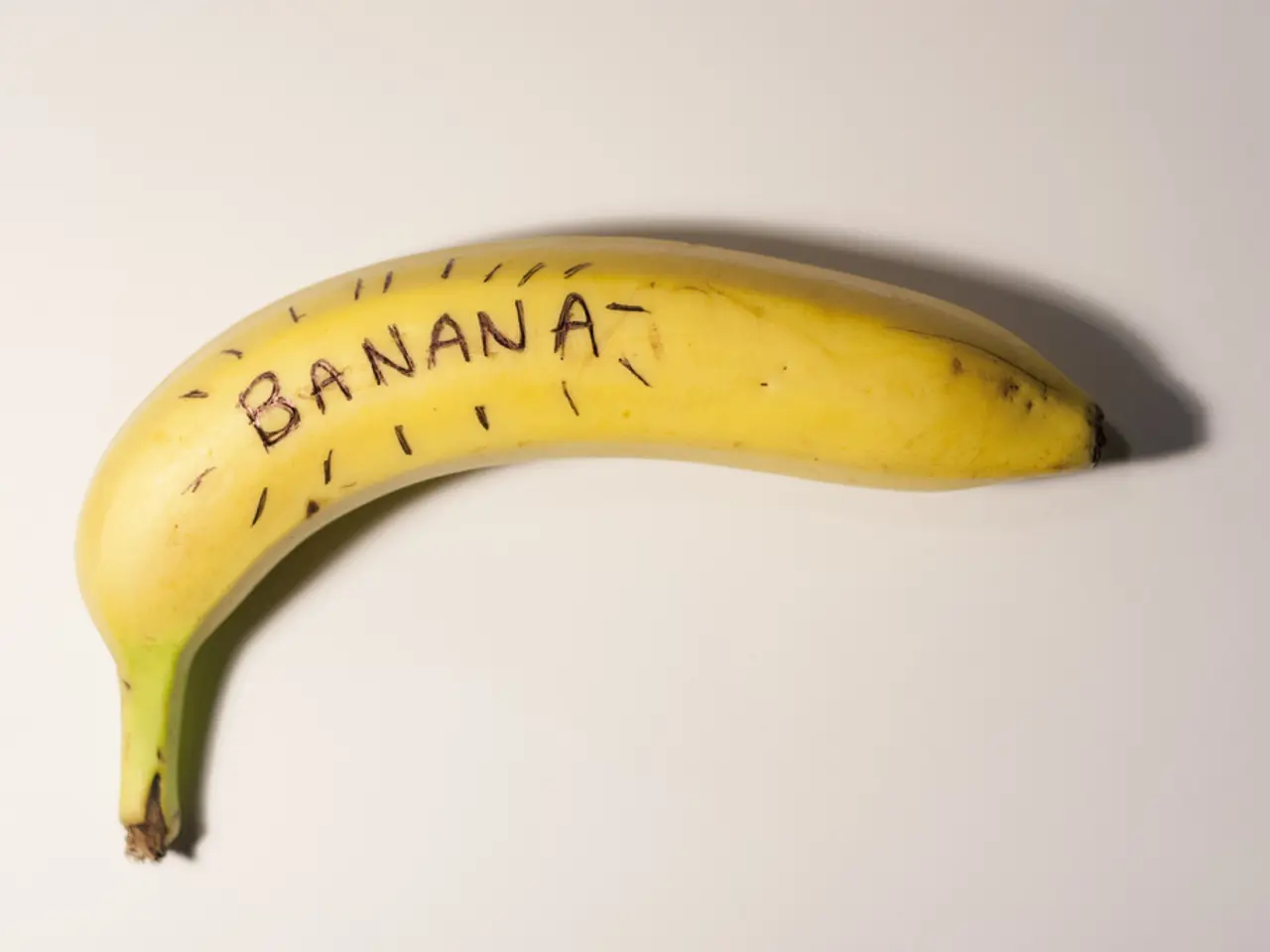Investigating the Moisture Content: Determining the Actual Water Amount in a Banana
Bananas, a staple in many diets, are not only known for their sweet taste but also for their hydrating properties. Approximately 75% of a banana's weight is water, equating to around 90-110 milliliters (ml) of water in a medium-sized banana [1][3].
This water content plays a significant role in supporting hydration, although it should be viewed as a supplement to direct water intake rather than a substitute for it [1][3]. Bananas also contain essential nutrients like potassium (around 420 mg per medium banana), which aids in fluid balance and nerve function [1][2][3].
Water also plays a crucial role in the bioavailability of banana's nutrients, particularly water-soluble vitamins such as vitamin C. Bananas are a good source of vitamin B6, vitamin C, manganese, and fiber [4].
Bananas provide a quick and sustained energy boost due to their natural sugars (glucose, fructose, and sucrose) and complex carbohydrates. The water content affects a banana's texture, with well-hydrated bananas being smooth, creamy, and easy to chew [1].
The size, variety, and ripeness of a banana can influence its water content. Larger bananas contain more water, and ripe bananas have a higher percentage of readily available water compared to unripe ones [1]. Environmental factors like climate, irrigation, soil type, sunlight exposure, and temperature also impact a banana's water content [1].
While bananas offer a valuable source of hydration, it's essential to maintain a balanced diet and not depend solely on them for hydration or nutrition. Excessive consumption could lead to imbalances, particularly in individuals with impaired kidney function or those taking certain medications [4].
To maximize the hydrating benefits of a banana, consume it alongside water or other hydrating beverages. Bananas, with their unique combination of hydration, electrolytes, and carbohydrates, are particularly valuable after exercise [4].
Incorporating bananas into your diet is a beneficial strategy for maintaining overall hydration levels, especially in situations where access to water might be limited. However, water remains the most important aspect of staying hydrated.
[1] Banana - Nutrition Facts & Calories [2] Potassium: Fact Sheet for Consumers [3] Water: How Much Should You Drink Every Day? [4] Bananas: Nutrition Facts and Health Benefits
Science reveals that bananas, a crucial element in health-and-wellness, offer both hydration and essential nutrients, such as potassium and vital water-soluble vitamins like vitamin C. Incorporating nutrition-rich bananas into one's diet can support overall health by aiding in fluid balance, nerve function, and providing a quick and sustained energy boost.




